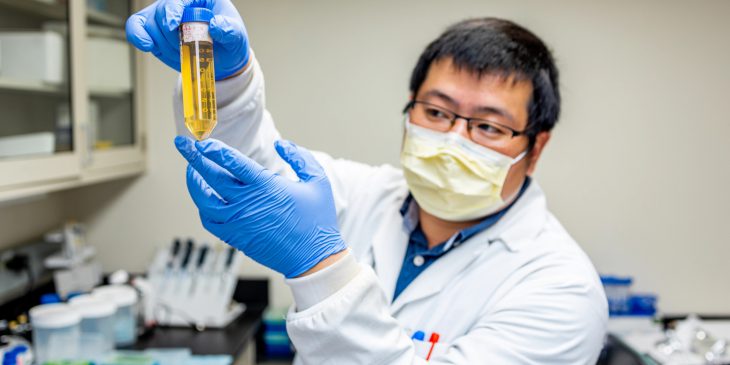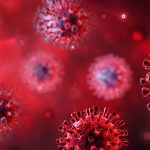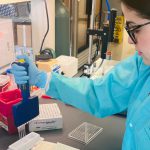Before COVID-19 was a widespread concern in the U.S., infectious disease scientists at the University of Pittsburgh and UPMC rapidly mobilized to look for a treatment. Drs. Steven Shapiro, John Mellors, and Dimiter Dimitrov discussed promising findings at a virtual press briefing today.
Researchers at Pitt’s Center for Antibody Therapeutics, with support from UPMC, panned their library of 100 billion antibodies to identify possible candidates for use against SARS-CoV-2, the virus that causes COVID-19. Using the SARS-CoV-2 spike protein as bait, Dimitrov and his team had identified the most promising options in barely a week, and they used one of them to create a drug now called Ab8.
Mellors, UPMC and Pitt’s chief of infectious diseases, and Dimitrov, director of the Center for Antibody Therapeutics, collaborated with several universities throughout the United States and Canada to further study Ab8 with the hope that it can one day serve as both a treatment and a preventative measure against COVID-19. The findings from their initial research were recently published in the journal Cell.
“This team approach to science is critical to addressing COVID-19 because it is a global challenge facing all of humanity,” said Dimitrov. “I am proud that Pittsburgh is playing such a key role in the efforts of biomedical science and human ingenuity to overcome this pandemic.”
Abound Bio, a recently formed UPMC-backed company, has licensed Ab8 for worldwide development.
“This advance—like all of our other advances during the pandemic—came quickly because we laid the groundwork long ago and took risks and made investments that few other academic medical centers would make,” said Shapiro, UPMC’s chief medical and scientific officer. “There is still much work to be done to make this antibody-based drug available to patients, but this is an exciting and promising advance as we work on multiple strategies to end this pandemic.
For additional information on this research, visit the UPMC Newsroom.









